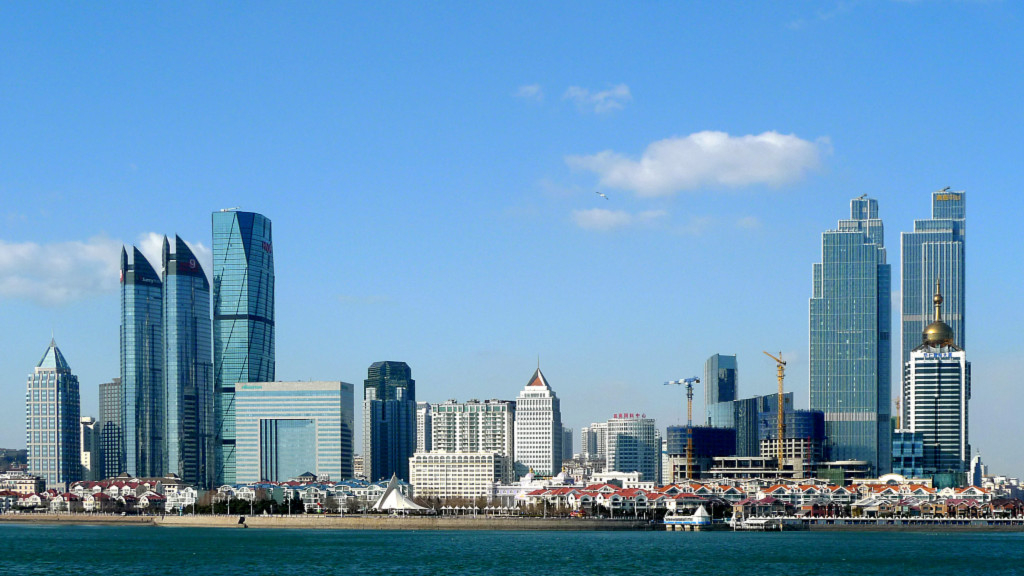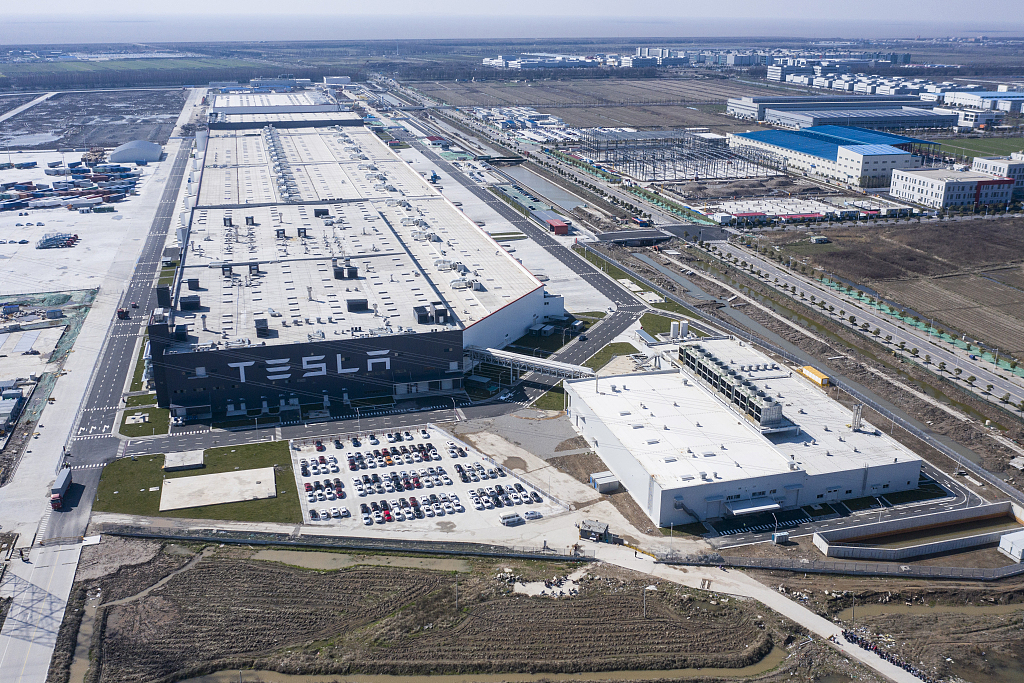
Qingdao City, Shandong Province, China. /VCG
Qingdao City, Shandong Province, China. /VCG
Editor's note: CGTN's First Voice provides instant commentary on breaking stories. The daily column clarifies emerging issues and better defines the news agenda, offering a Chinese perspective on the latest global events.
Amid the coronavirus outbreak, many fear the worst for the Chinese economy.
Some researchers have predicted that the outbreak could cost as much as 1 percent of China's GDP in 2020. The economic growth rate for the first quarter is likely to fall below 2 percent, according to a poll of Reuters economists. In the worst case scenario, if the outbreak cannot be controlled by the end of this year, real GDP growth could be less than 5.4 percent, according to the Economist Intelligence Unit.
Fortunately, there has been encouraging news about the novel coronavirus, which has showed that strong measures have taken effect. According to the latest data, the number of new confirmed cases per day of novel coronavirus outside Hubei has been on the decline for 16 days; on February 20, this figure in Hubei Province has dropped under 1000 for the first time since January 29.
"There is no doubt that the outbreak will have a negative impact on Chinese economy; but the scale mainly depends on how China can put the outbreak under control," said Jiang Yuechun, director of the Department for World Economy and Development Studies at the China Institute of International Studies (CIIS). Referring to the latest data, he pointed out that we should now have confidence in the battle to beat the coronavirus.
Although China is still insisting on protection measures, these falling rate of new cases has buoyed investors' confidence in the long-term health of Chinese economy. At these moments, pessimistic sentiment is possibly more damaging to the real economy as it has a devastating impact on investment and consumption.
That is why these early signs of light at the end of the tunnel are so crucial. In the Reuters poll, economists are also optimistic that the Chinese economy will bounce back after the second quarter.
Some places in China have put measures in place to encourage companies to bring their employees back to work. According to Chinese officials, more than half of the major industrial enterprises in Guangdong Province, Jiangsu Province and Shanghai have resumed operations. Credit support and tax exemption have also been given to foreign enterprises. Tesla's Shanghai Gigafactory restarted its services on February 17.

The Tesla Inc. Gigafactory in Shanghai, China, Feburary 17, 2020. /VCG
The Tesla Inc. Gigafactory in Shanghai, China, Feburary 17, 2020. /VCG
According to Jiang, consumption and tourism are likely to take a hit. Traditionally, Spring Festival is a peak time for shopping, but not this year. In the short term, investment and exports will also be affected.
"But the outbreak will end," said Jiang, adding that China's economic structure has been upgraded and has become healthier. In the long term, China has the resilience to weather the current crisis.
Some observers like to look back at SARS in 2003 and predict that the coronavirus will inflict more economic pain. SARS mainly took its toll on the economy in the second quarter of that year; GDP dropped 2 percent compared with the first quarter. But, it's easy to forget that China was in the economic growth fast lane back then after just joining the WTO. Fast forward to 2019, the pressure of an economic downturn is more than ever.
But, pessimists should also not forget that China is a stronger economy now. China's share of the global economy is four times bigger than that during the SARS outbreak, and it is the world's second-largest economy. As China's economy grows, so does its ability to withstand risk.
As the Chinese government plans more financial easing measures to lower production costs, this is perhaps also a window for companies to reform and upgrade their organizational structure. In the meantime, creativity inside industries is also springing up. A Chinese film "Lost in Russia," which was designed to win box office success during the Spring Festival, has set a win-win example after its surprising online release. Cinemas were not happy with this move, but it was an important step towards a more consumer-oriented film industry.
Undoubtedly, the human cost and economic losses will be painful. But in the long term, China will still have the economic upper hand if measures taken guide the market through hard times. We have seen how resilient Chinese people are during the battle against the coronavirus, and there should no doubt as to whether the Chinese economy will also weather the coronavirus storm.
Script writer: Zhao Yuanzhen
(If you want to contribute and have specific expertise, please contact us at opinions@cgtn.com)